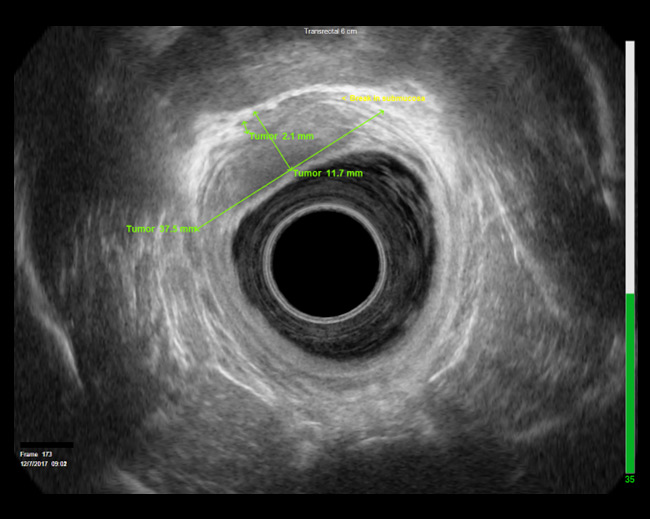Benign & Malignant Disease and Rectal Cancer Staging
Transrectal ultrasound is useful in distinguishing early-stage disease and allows patients instant feedback.
Rectal Cancer Staging
MRI and transrectal ultrasound are widely used and considered highly accurate methods for diagnosing and staging anorectal cancers. While in many U.S. colorectal and gastroenterology practices, MRI has become the standard choice for rectal cancer staging, transrectal ultrasound continues to be a relevant and useful option. It is often used in conjunction with MRI.
Transrectal ultrasound is especially useful in distinguishing very early-stage disease. When used in-office, transrectal ultrasound is a convenient tool that allows an anxious patient instant feedback at the time of the office visit.
Treatment options can be managed on the same day, and outcomes can be tracked with subsequent ultrasound exams. Using transrectal ultrasound can identify disease recurrences early.

Transrectal Ultrasound
The Catalyst Ultrasound System allows practitioners to precisely identify, mark, and measure the exact location and stage of the disease.
The rectal balloon and built-in water pathway are designed to be simple to use and only take minutes to set up and implement. Halo’s proprietary proctoscope can be used in conjunction with our probe when the pathology location is unknown.
Cine/Video File
Record and playback a clip of the entire rectum. Click frame by frame to identify the exact location of the anal or rectal neoplasia.
Measurement tool
The Catalyst software has built-in measurement tools that measure the area and size of any mass, node, or area of concern in the anal canal and rectum.
Ultrasound Probes
Halo ultrasound probes are designed for rectal cancer staging.










